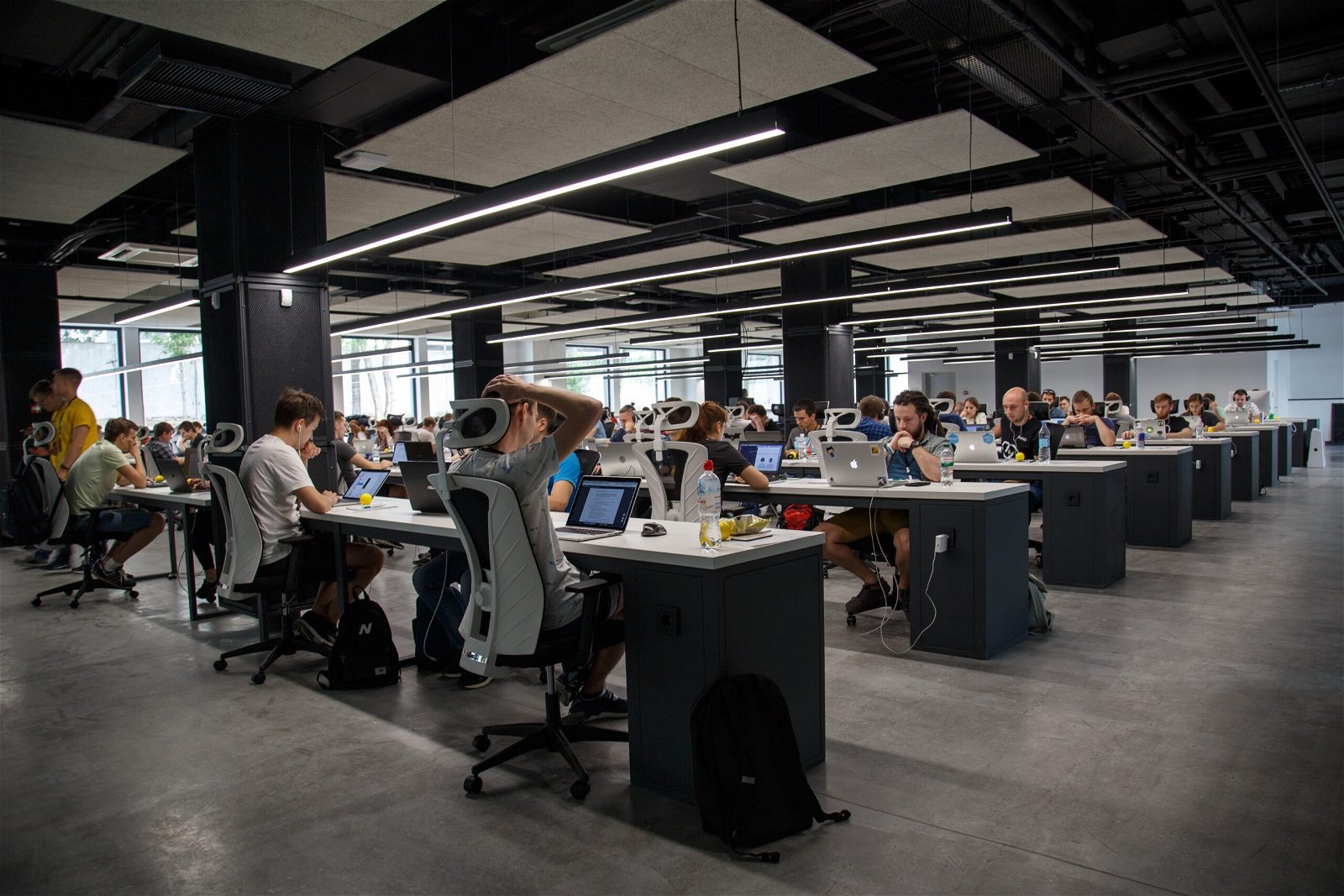Soft skills is a catch-all term referring to various behaviours that help people work and socialize well with others. In short, they are the good manners and personality traits needed to get along with others and build positive relationships unlike hard skills which include a person’s technical skill set and ability to perform certain functional tasks.
According to a 2016 research by Harvard University, Carnegie Foundation and Stanford University, 85% of success at jobs comes from great soft skills. According to an Employer Survey conducted by NACE in 2019, more than 90% of employers agree that “a candidate’s demonstrated capacity to think critically, communicate clearly, and solve complex problems is more important than their undergraduate major.”
Soft skills are broadly applicable across job titles and industries. It’s often said that hard skills will get you an interview but you need soft skills to get and keep the job. No matter what our position, organisation or industry we belong to, we work with people. So taking the time to build effective soft skills can lead to a more efficient, harmonious and productive workplace.
15 Reasons Soft Skills Are Important For Employers
1.Improve Leadership
One of the most important reasons why soft skills are important for employers is that it improves leadership. Leadership skills are important for employers as they look for this skill in the employee even if they are seeking an entry level position. Long before you can lead others, you must learn to lead yourself.
This means being a self leader means a person who possesses the ability, energy and determination to accept responsibility for success in their work-related role. 3 of the most top leadership traits are-
-
Motivation
On any given day an employee should be able to motivate yourself to do your best work. If you can’t motivate yourself, you will have a hard time motivating others.
-
Decision Making
How do you handle making everyday decisions? Do you make them on your own, ask permission or wait for your superior to tell you what to do? Answer these questions and you will know if you are a decision maker.
-
Confidence
You need to be confident enough to speak up when you find a better way to do something even at the risk of being shut down. If you are shut down, are you willing to do it again in the future?
If you have a hard time motivating yourself or waiting to be told what to do or you hesitate to speak up, consider developing your self-leadership skills.
2.Compliment Work Ethic
Employers look for a strong work ethic when hiring. Work ethic basically means arriving to work on time, focusing on the task at hand, and being committed to performing your job to the best of your ability.
Interviewers will ask how you feel about the hours you will be working to determine your work ethic. If you start listing reasons you may be late or need to leave early, that’s a reg flag. Time management is another way interviewers gauge your work ethic.
You may be asked to describe a normal work day once you arrive at the office. If you are at your desk working less than 10 minutes after arriving, that tells the interviewer that you manage your time well. Interviewers want to know if you are going to do what they hire you to do at the time you are assigned to do it.
3.Build Positive Attitude
“Your attitude, not your aptitude, will determine your altitude.” -Zig Ziglar
This means that your general demeanour will determine how high you go in your career. That’s why this soft skill is important for employers. Don’t get me wrong, I am not talking about plastering a smile on your face and being sticky sweet.
Having a positive attitude means being in a state of mind that will keep you moving forward. A truly positive attitude goes a long way with employers. You may have been asked how you handle stressful situations by an interviewer. This is one of the questions that determines if you have a positive attitude or not.
4.Improve Interpersonal Skills
Your interpersonal skills are what you use to effectively interact with others. This is one of the reasons why this soft skill is important for employers as these are closely watched during interviews. Interpersonal skills includes-
-
General Politeness
General politeness shows you have respect and consideration for those you work with. Make a point to be cordial to everyone you interact with at your interview.
-
Listening Ability
How well you listen is crucial in every facet of life, more so in the workplace. Show the interviewer you were listening by paraphrasing a question but not every question. Also, if you are asked a question you don’t understand, ask for clarification.
-
Professional Decorum
Professional decorum plays a huge role in the workplace and interviewers are taking note of it. Dress appropriately for the job you are interviewing for and behave appropriately. Interviewers expect you to be nervous so just be yourself but in a professional environment.
5.Measure Teamwork
You are not going to be alone on a job whether you are a part of a team or leading a team. The ability to work with a team is a requirement of almost every job. Interviewers will often ask how you feel about working on a team.
Your answers will let them know if you are a good fit for the job. Employers love team work. teamwork is your ability to collaborate and cooperate with others on joint projects. Part of team work is knowing how to connect with members on the team and with other stakeholders.
It is about taking a good collectivist view of the team, the team outcomes and the entire effort. You also need to contribute to discussions that are outside or personal areas of expertise.
6.Improve Verbal Communication
Coming in second behind how you look is how you sound. That’s why soft skills are important for employers. When interviewers ask you to tell you about yourself, they are doing two things, they are getting to know you and getting an idea of how well you communicate. Verbal communication involves-
-
Vocal Quality
Vocal quality includes how loud, fast and clear you speak. No matter where you are from or what accent you have, an ideal speaker articulates their words at a comfortable volume and pace.
-
Word Choice
Choosing the written word before speaking them is a skill that only comes with practice. There is a happy medium between being brutally honest and sugarcoating. A popular question is, How would you describe the worst boss you have ever had?
Would you say “he was a total jerk!” or “he wasn’t a very nice man.” or “he was often rude and unprofessional.”. Even though all three are true, the third choice is direct and descriptive.
-
Tone
I know you have heard this before “It’s not what you said but how you said it”. Not much explanation is needed here. Be mindful of your tone. Conveying information in a concise, thoughtful and respectful manner is a soft skill that employers value.
7.Improve Written Communication
Writing effectively is a skill employers seek. Effective writing includes stating your goals clearly, using a professional tone, being brief, and using proper spelling, grammar, and punctuation. In any position you may have to send text messages, email, write reports or gift presentations.
I would also like to mention handwriting because in a professional setting your handwriting speaks volumes. Legible and neat handwriting tells others that extra effort is taken to be understood, even on a quick note left on a monitor.
8. Develop Critical Thinking
This is another reason why soft skills are important for employers. Critical thinking goes hand-in-hand with problem solving. Critical thinking is a disciplined process of actively and skillfully evaluating information. This includes problem solving as well as looking at a situation, taking action before it becomes a problem.
If you mention an on-the-job improvement on your resume, an interviewer may ask you to talk about it. So write this out as well to rehearse. Critical thinking is a mental habit and power which is developed through learning. So, if you happen to love learning you already have critical thinking skills.
9.Enhance Problem Solving
Problem solving is needed for every job out there from entry level to executive positions. It is the ability to recognize difficulties or complications, identify possible solutions, implement them, and finally follow up to make sure they are successful.
Interviewers often ask you to give an example of how you solve a problem on the job. For instance, a store manager would share how she handled scheduling issues during flu season.
Here’s something to do long before your interview: write out a problem you solved at work, note when you recognized it, your solutions and how you implemented them and the final result. It may take some time but it’s better to take the time beforehand than to be blindsided in the interview.
10. Increase Flexibility
Being flexible shows employers that you can adapt to a changing workplace and that’s why soft skills are important for employers. Flexibility goes beyond hours, policies change, job locations change, technical skill requirements change and leadership changes.
Those are just a handful of changes people face in the workplace over time. An interviewer may ask how you respond to change. Make sure to think of an honest but positive answer.
11. Maintain Workplace Civility
For many companies and many employees, the maximum time of the day is spent at the workplace and a lot of people say that their workplace becomes their second home. If your workplace is a second home then you definitely want that home to be full of a healthy environment and positivity. This is the reason why soft skills are important for employers.
Workplace civility pertains to the behaviour of people in any environment. They should be courteous, treat others with respect and follow the moral rules of the workplace. People should be able to trust each other and show positive behaviour. Workplace Civility includes-
-
Mutual Respect
Workplace diversity fosters mutual respect amongst the team members. Different cultures and age groups bring different dynamics to the table and employees gain respect for each other.
-
Productivity
Workplace civility has a direct impact on the productivity of the company. If the employees witness bad behaviour like badgering, bullying or harassment, they tend to become stressed and lose their time of work which directly affects the company.
-
Commitment
When employees experience incivility at work, they tend to become less committed to their organisations. This leads to attrition. Companies have to let go of their good employees and re-hiring costs too much money and resources.
12.Develop Curiosity
A sense of curiosity is one of the most undervalued things. But it is very important for employers when it comes to the workplace as this contributes to career success. A sense of curiosity can be understood as a state of active interest or genuinely wanting to know more about something.
New employees are usually on a steep learning curve. You’ll have to learn all about the job you were hired to do, the company and the industry itself. You will have to be curious and learn all you can so you can do your job effectively and stand out from other employees.
Cultivating and exercising our sense of curiosity opens up our willingness to embrace new experiences, unknown situations and varied environments. On top of that it lays the foundations for discovery, whether that’s new information, people or experiences. Being curious may lead to a positive outcome.
Your willingness to take risks comes with the possibility that the result will not benefit you, but the learning process itself will add value.
13.Multiple Usage
Professions like customer service are synonymous with soft skills. But everyone uses soft skills regardless of their job. Anytime you interact with a coworker, client or customer, you have the opportunity to use soft skills to make your work easier, better or more efficient.
Managing time,adapting to new situations and working well under pressure are all soft skills that transfer to any workplace environment to any level of experience. Employers recognize the importance of soft skills in the workplace. So, it’s important for people to put soft skills at the forefront of job applications.
Soft skills demonstrate that you understand the different characteristics that will help you succeed within an organisation and your specific position.
14.Indicate Longevity
When hiring for a position, most employers look for signs that an applicant will stay at their company long term. If an employee shows the capacity to grow at a company that employer will not have to expand more resources hiring a replacement.
Soft skills like conflict resolution, commitment, and motivation can make you a long-term asset to employers. Your attitude towards work is one of the most important indicators of longevity at a job. Employers may use longevity to decide between two similar applicants
15.Grow A Network
Soft skills are critical for creating and growing your personal network and making professional contacts in the workplace. People with strong soft skills have a curious attitude that allows them to pursue professional leads and develop industry knowledge at a fast pace.
Employers rely on people who have a strong professional network to help them make business connections, provide professional development and even make hiring decisions. If you can recommend useful services due to your network, your employer will likely value your opinions and ideas more highly.




![How to Improve Interpersonal Skills? [6 Steps] 5 How to Improve Interpersonal Skills](https://zoets.b-cdn.net/wp-content/uploads/2024/02/pexels-fauxels-3184357-scaled-e1708708387711.jpg)
![How to Improve Employee Welfare? [7 Ways] 6 How to Improve Employee Welfare](https://zoets.b-cdn.net/wp-content/uploads/2024/02/pexels-alexander-suhorucov-6457577-scaled-e1708707251724.jpg)



